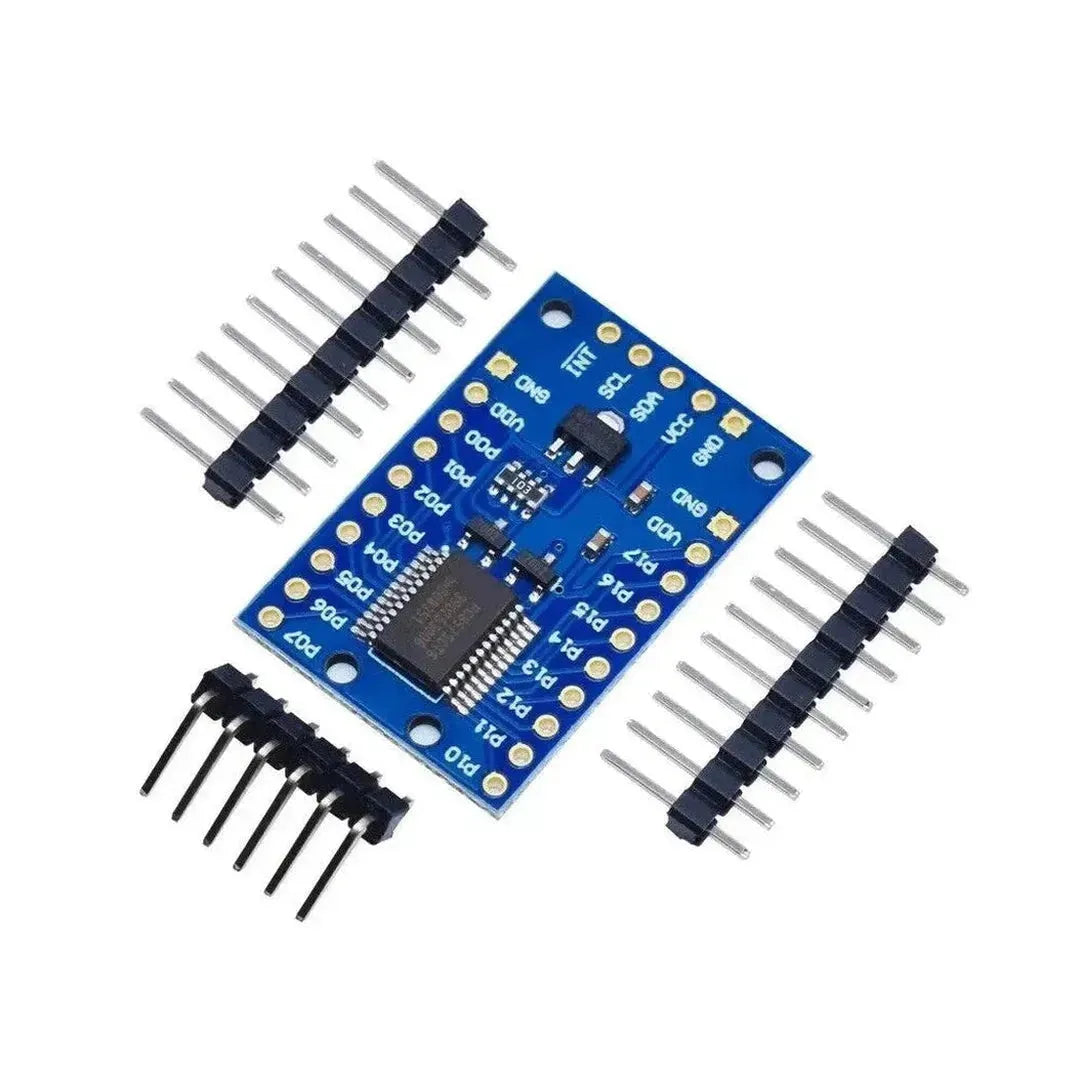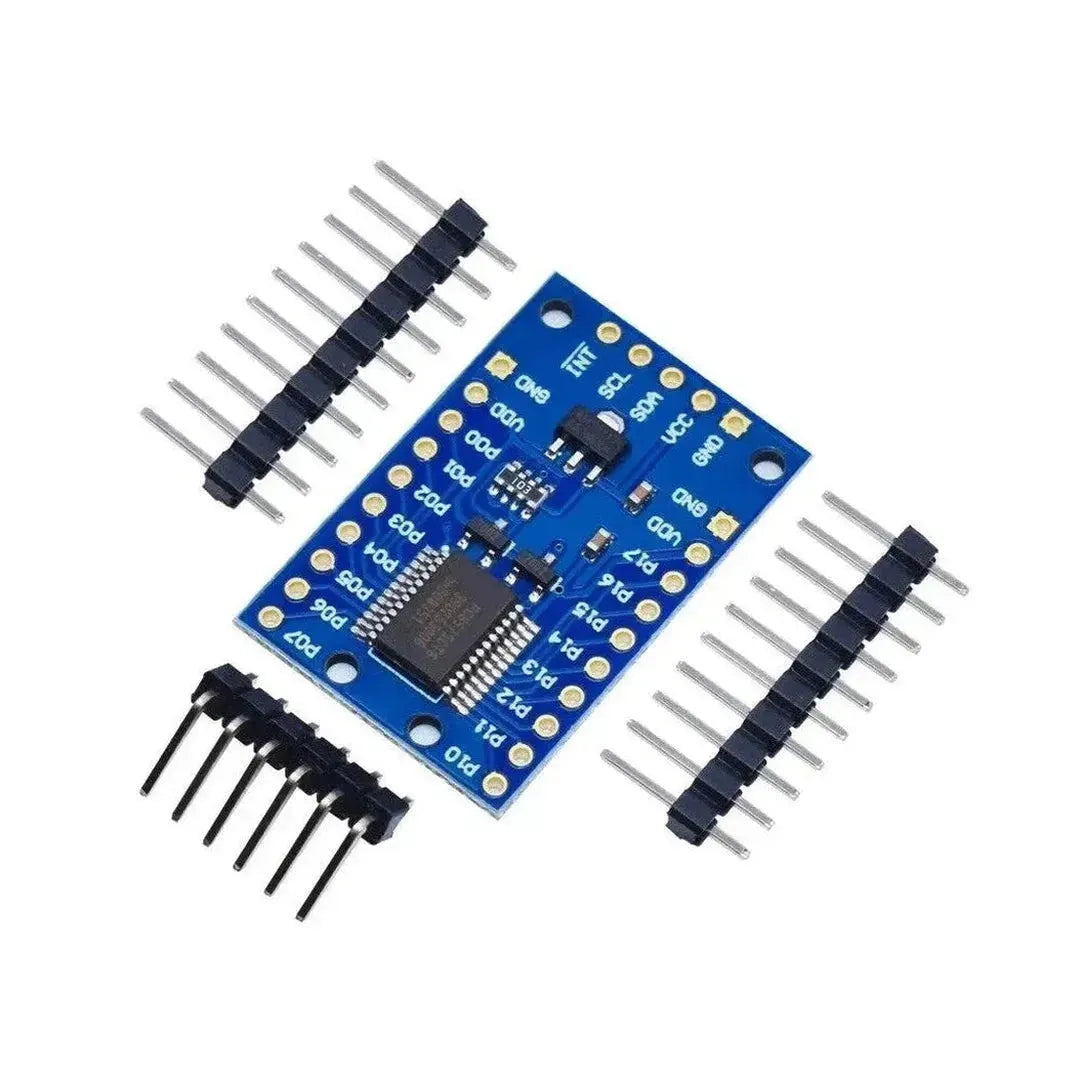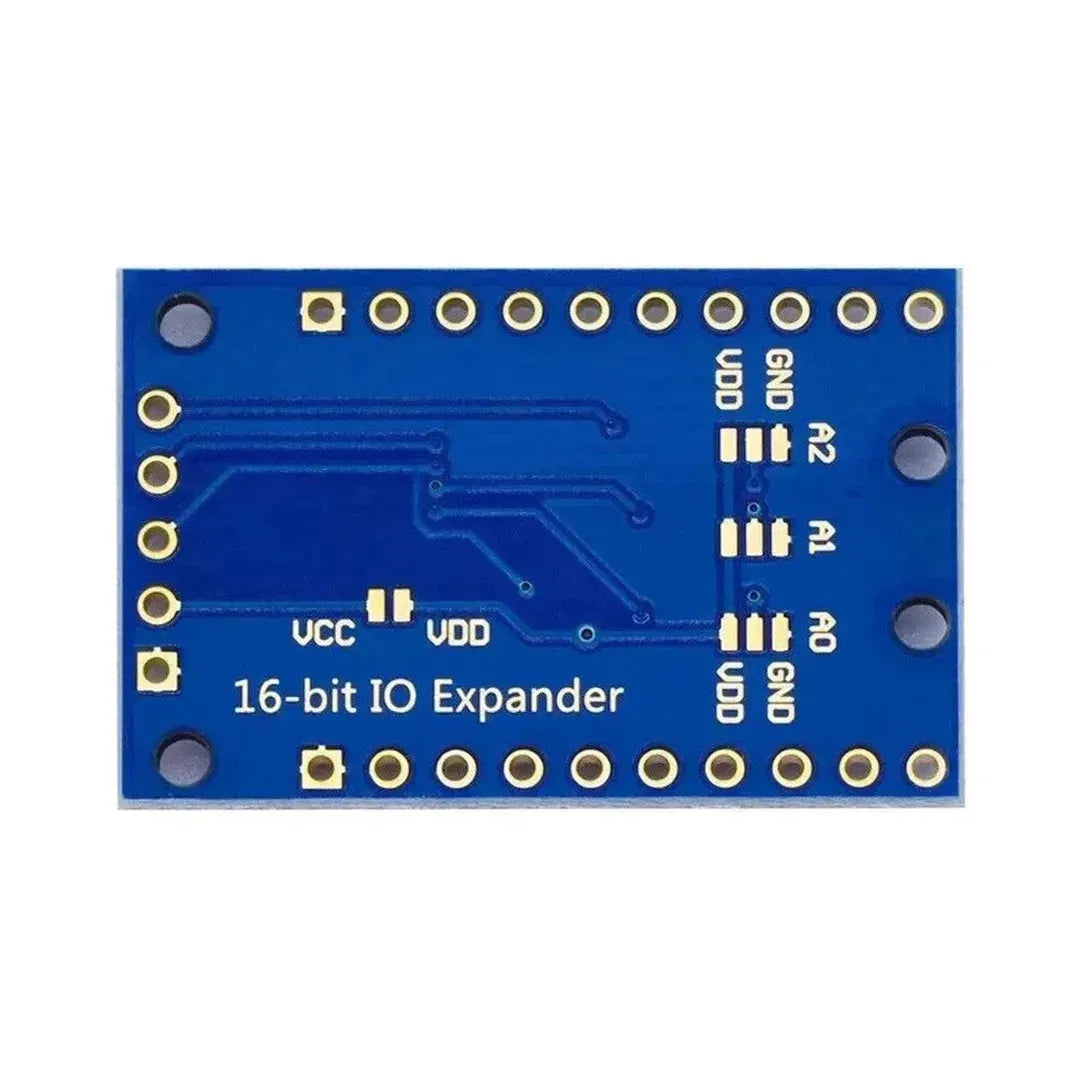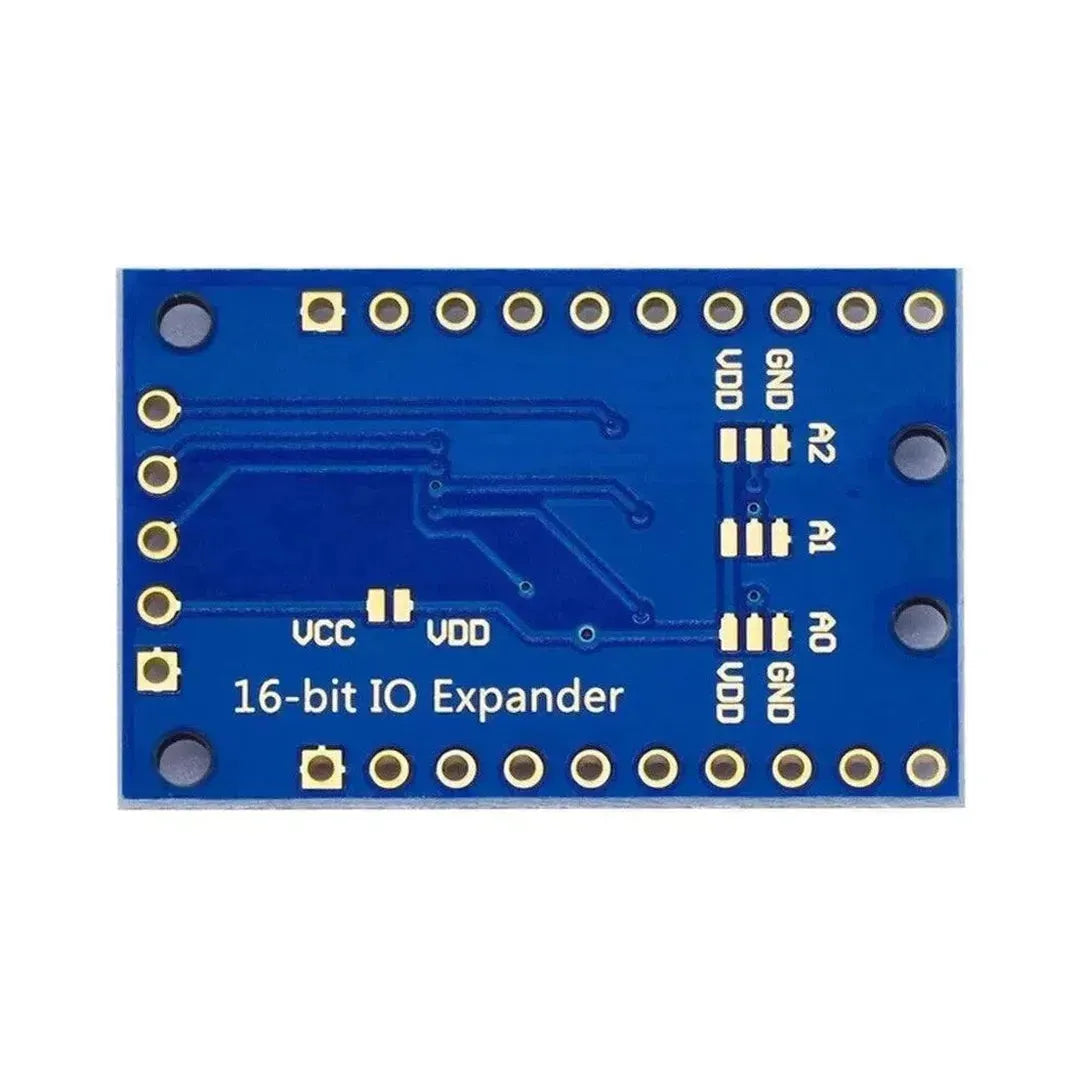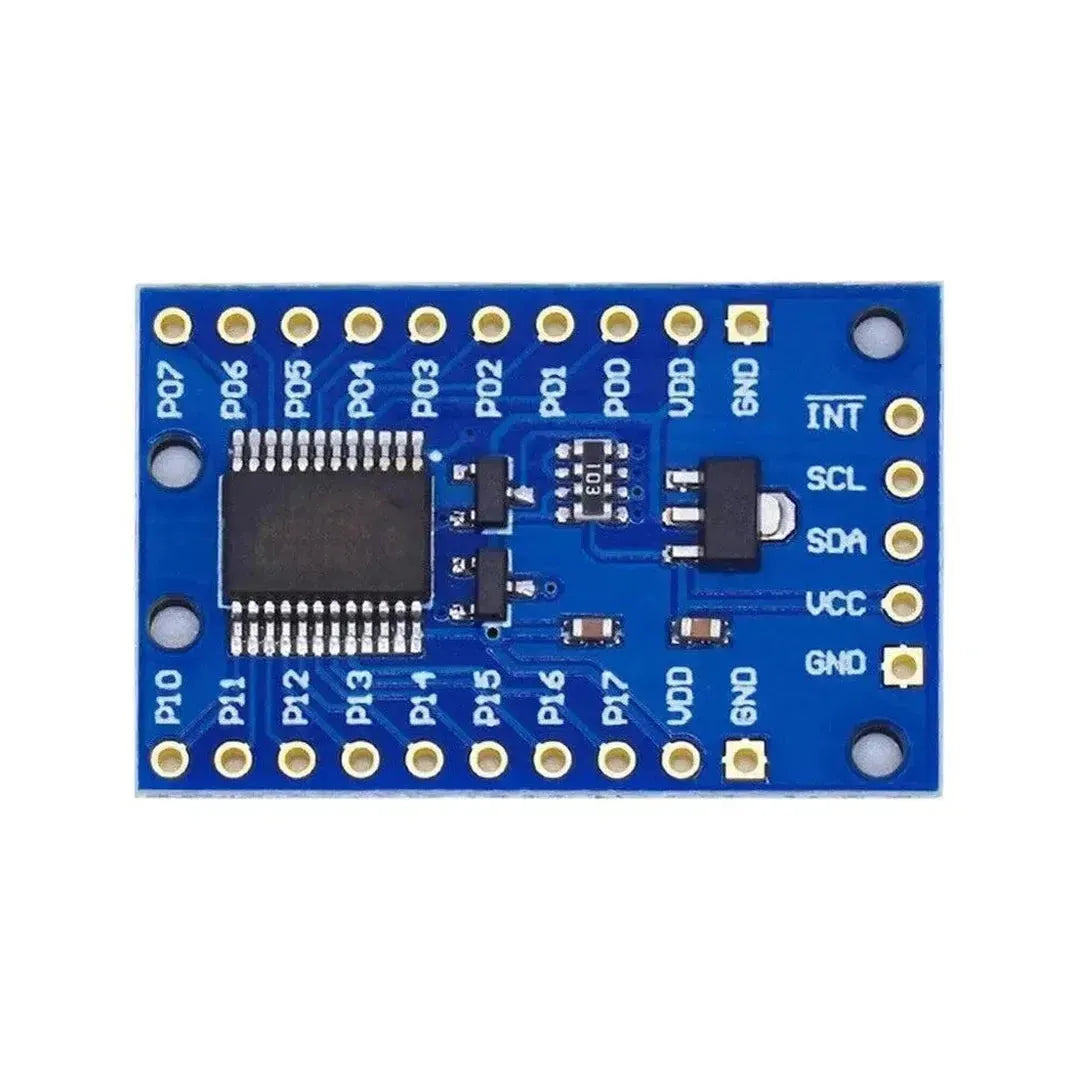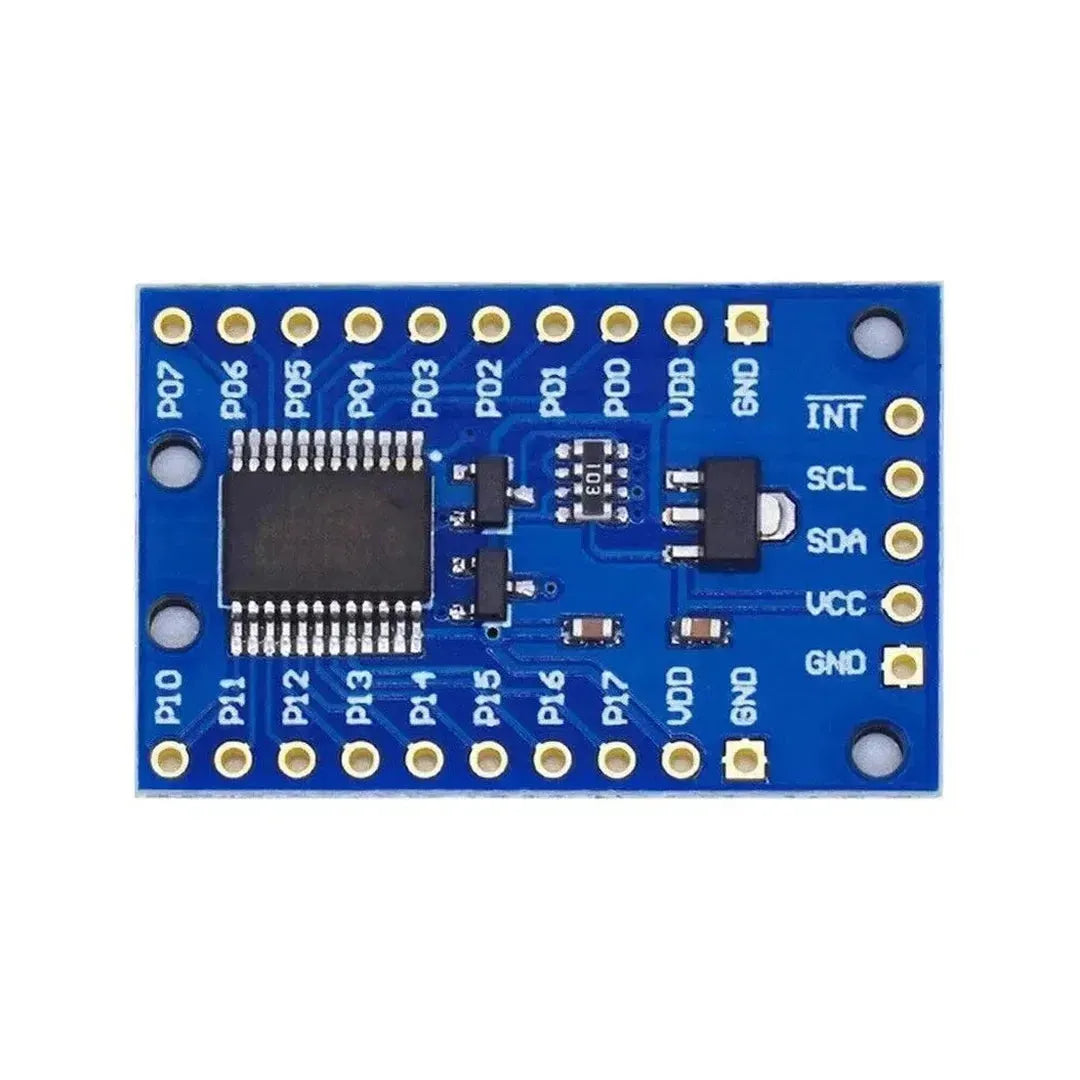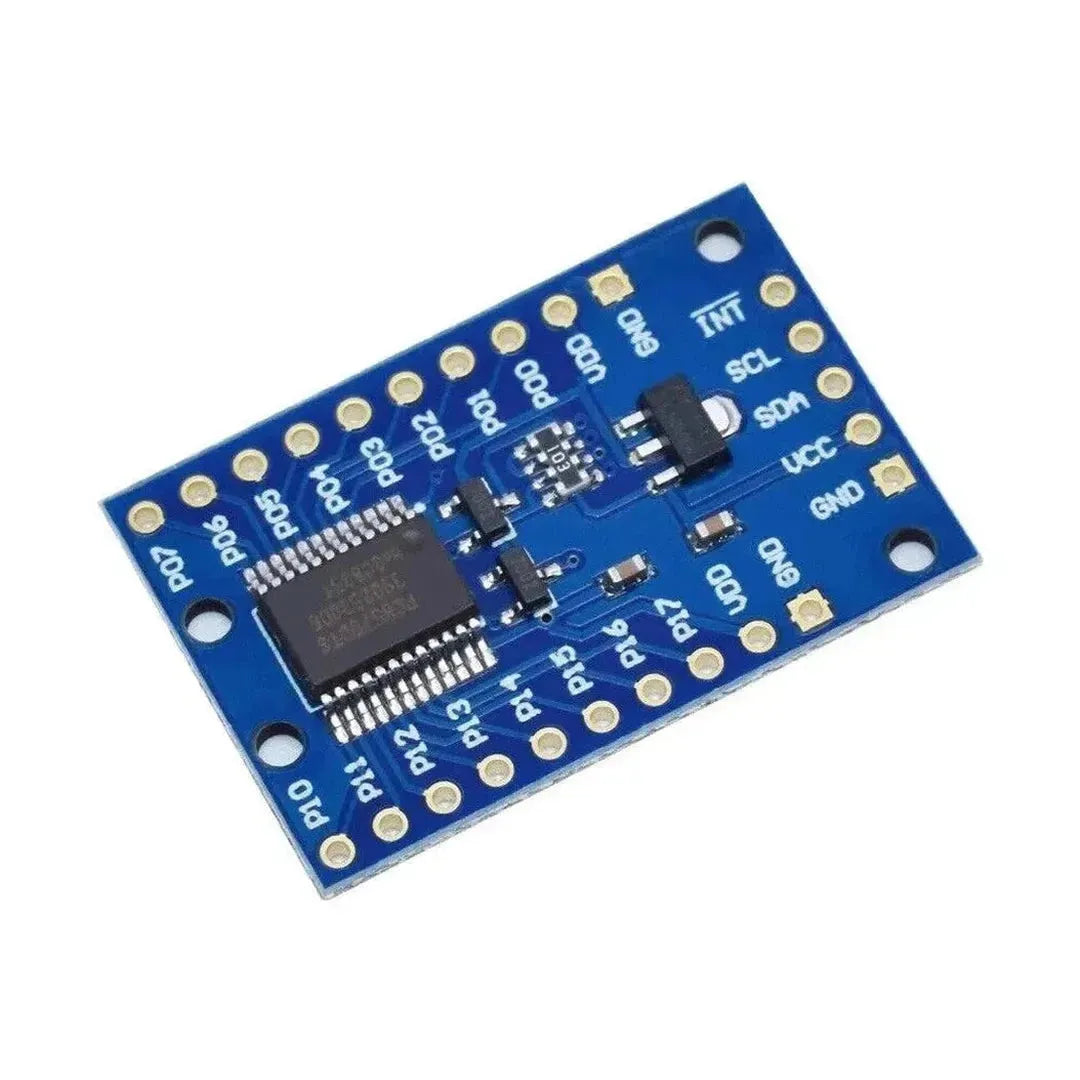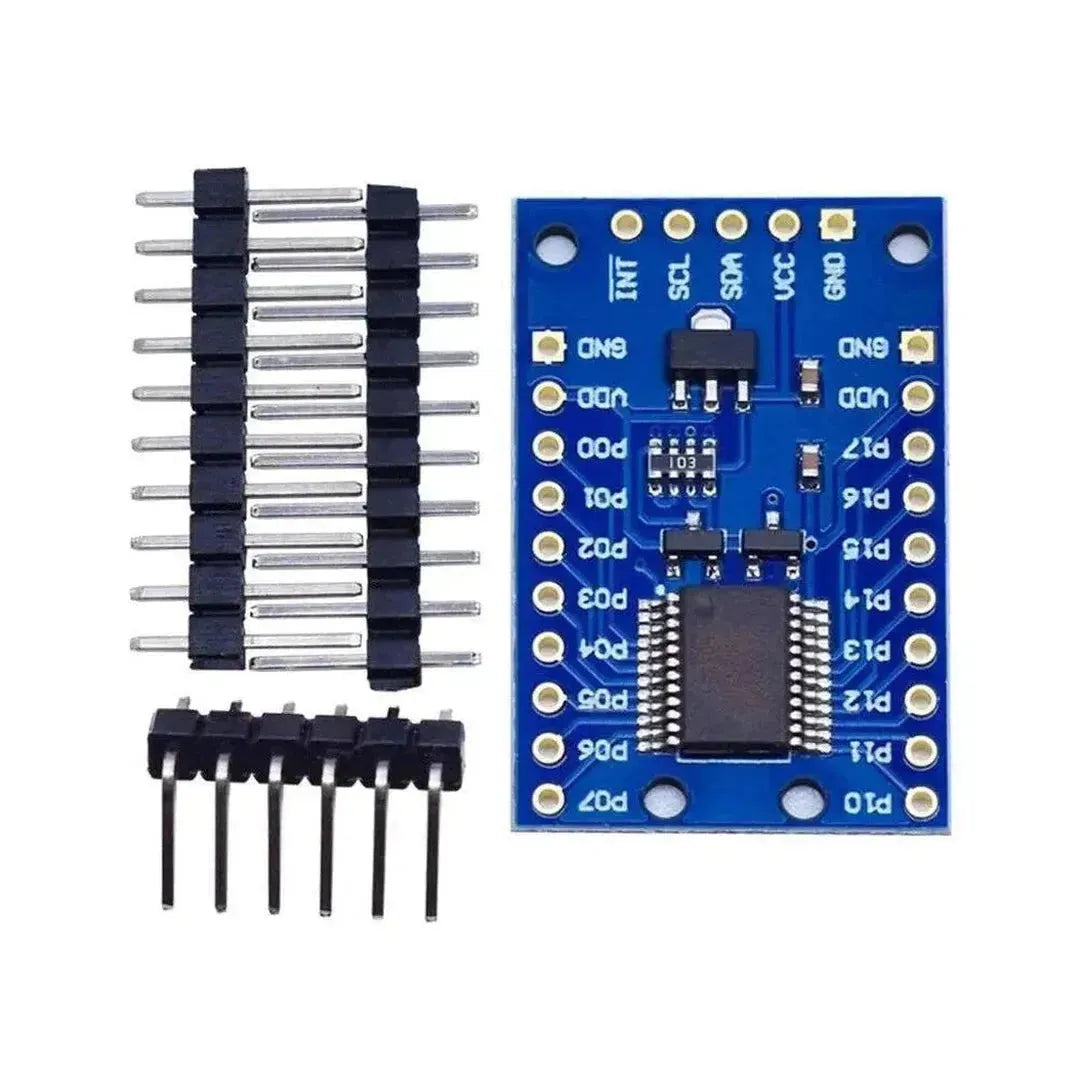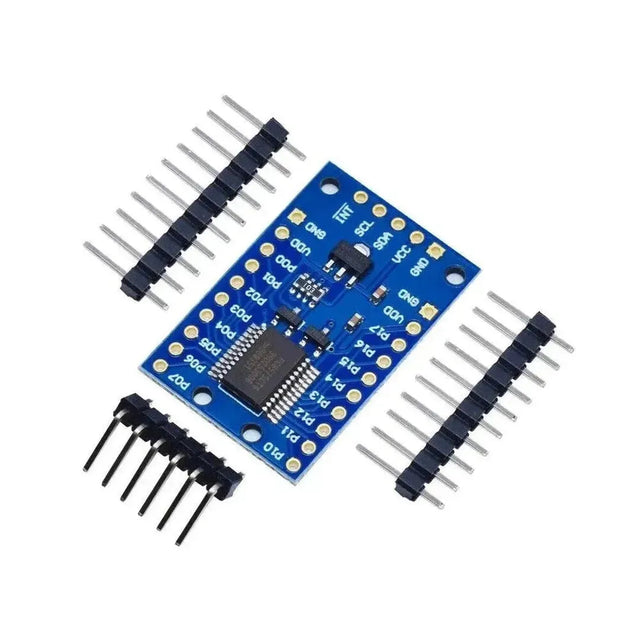PCF8575 I2C IO-Erweiterungsmodul
PCF8575 I2C IO-Erweiterungsmodul ist auf Lager und wird versandt, sobald es wieder verfügbar ist
Verfügbarkeit für Abholungen konnte nicht geladen werden
We Accept:
Delivery and Shipping
Delivery and Shipping
Shipping & Processing
Order Processing
- Same business-day for orders placed before 3 PM (GMT), except in rare cases when it may take 1 additional business day.
- Larger or specialist items require up to 3 business days to process.
Delivery Options
- Royal Mail 48
- Free on orders over £20
- £2.99 on orders under £20
- Delivery in 2–3 business days
- Tracked 24 (Next-Day) — £4.99
-
Standard (Large & Specialist Items)
- Free on orders over £20
- £6.99 on orders under £20
- Delivery in 2–14 business days (typically around 7 days)
- Processing may take up to 3 business days
- International
- We ship worldwide. Delivery options and estimated timeframes for your country are available at checkout.
- Customs, duties, and import taxes are your responsibility.
You’ll receive tracking details as soon as your order ships [track your order here]. For full details, please see our [Shipping Policy].
Useful Links

PCF8575 I2C IO-Erweiterungsmodul
€4,95
Das PCF8575-Modul ist eine Expansionskarte, die die verfügbaren E/A-Stifte mithilfe der I2C-Schnittstelle erhöht und 16-Bit-Quasi-Bidirektionaleingangs-/Ausgangsstifte bereitstellt. Es ist perfekt für Arduino- und Mikrocontroller-basierte Projekte.
Schlüsselmerkmale:
- I2C -Schnittstelle: Einfache Integration in Mikrocontroller.
- 3,3 V Level -Konverter: Unterstützt 3.3V und konfigurierbar für VCC.
- Betriebsspannung: 2,5 V bis 5,5 V DC.
- Strom arbeiten: Max 100 mA.
- Konfigurierbare I2C -Adresse: Standard 0x20, einstellbar über A1- und A2 -Pads.
- 16 adressierbare Stifte: Unabhängig als Eingabe oder Ausgabe konfigurierbar.
- Ausgang unterbrechen: Open Drain Interrupt Pin zur Erkennung von Eingangsänderungen.
- Vielseitige Anwendungen: Ideal für die Steuerung von Relais, Summer, Tasten, LEDs usw.
Anwendungen:
Perfekt für die Erweiterung der E/A -Funktionen in Projekten und Verbesserung der Funktionalität von Mikrocontrollern wie Arduino Uno R3.
Let customers speak for us
What customers think about the store
The store offers high-quality products at reasonable prices, with fast shipping and excellent customer service. Customers praise the efficient communication, good value for money, and prompt delivery. Products generally meet or exceed expectations, with a few ...

